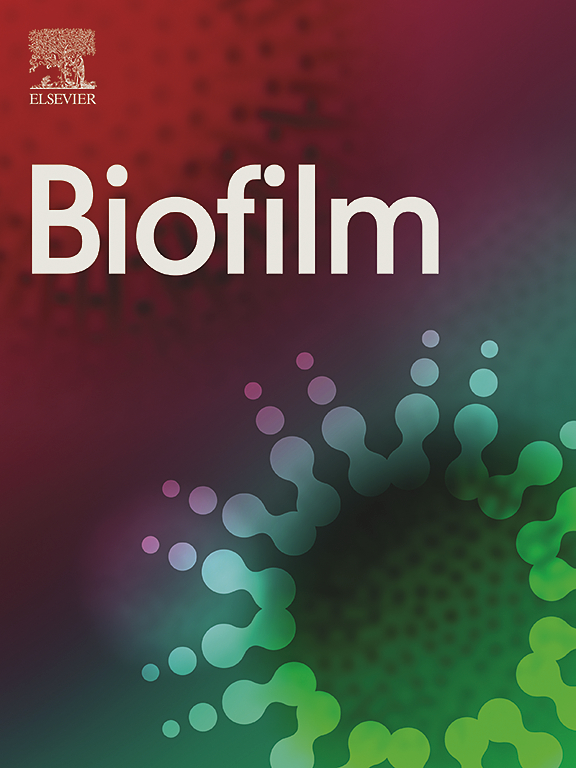Fibrous scaffolds loaded with BMSC-derived apoptotic vesicles promote wound healing by inducing macrophage polarization
IF 6.9
2区 医学
Q1 BIOCHEMISTRY & MOLECULAR BIOLOGY
引用次数: 0
Abstract
Macrophages play a key role in wound healing. Dysfunction of their M0 polarization to M2 leads to disorders of the wound immune microenvironment and chronic inflammation, which affects wound healing. Regulating the polarization of M0 macrophages to M2 macrophages is an effective strategy for treating wound healing. Mesenchymal stem cells (MSCs) deliver endogenous regulatory factors via paracrine extracellular vesicles, which may play a key role in wound healing, and previous studies have shown that apoptotic bodies (ABs) are closely associated with inflammation regression and macrophage polarization. However, the specific regulatory mechanisms involved in ABs remain unknown. In the present study, we designed an MSC-AB (MSC-derived AB)-loaded polycaprolactone (PCL) scaffold, evaluated the macrophage phenotype and skin wound inflammation in vivo and in vitro, and explored the ability of MSC-AB-loaded PCL scaffolds to promote wound healing. Our data suggest that the PCL scaffold regulates the expression of the CCL-1 gene by targeting the delivery of mmu-miR-21a-5p by local sustained-release MSC-ABs, and drives M0 macrophages to program M2 macrophages to regulate inflammation and angiogenesis, thereby synergistically promoting wound healing. This study provides a promising therapeutic strategy and experimental basis for treating various diseases associated with imbalances in proinflammatory and anti-inflammatory immune responses.
纤维支架上装载了来源于 BMSC 的凋亡囊泡,可通过诱导巨噬细胞极化促进伤口愈合
巨噬细胞在伤口愈合中起着关键作用。巨噬细胞 M0 极化为 M2 的功能障碍会导致伤口免疫微环境紊乱和慢性炎症,从而影响伤口愈合。调节 M0 巨噬细胞向 M2 巨噬细胞的极化是治疗伤口愈合的有效策略。间充质干细胞(MSCs)通过旁分泌性细胞外囊泡传递内源性调节因子,可能在伤口愈合中发挥关键作用,既往研究表明,凋亡体(ABs)与炎症消退和巨噬细胞极化密切相关。然而,ABs 所涉及的具体调控机制仍然未知。在本研究中,我们设计了一种间充质干细胞-AB(间充质干细胞衍生的AB)负载的聚己内酯(PCL)支架,评估了巨噬细胞表型、皮肤伤口炎症和Ⅳ度炎症,并探讨了间充质干细胞-AB负载的PCL支架促进伤口愈合的能力。我们的数据表明,PCL支架通过局部缓释间充质干细胞-AB靶向递送mmu-miR-21a-5p来调节CCL-1基因的表达,并驱动M0巨噬细胞对M2巨噬细胞进行编程,以调节炎症和血管生成,从而协同促进伤口愈合。这项研究为治疗与促炎和抗炎免疫反应失衡有关的各种疾病提供了一种很有前景的治疗策略和实验基础。
本文章由计算机程序翻译,如有差异,请以英文原文为准。
求助全文
约1分钟内获得全文
求助全文
来源期刊

Genes & Diseases
Multiple-
CiteScore
7.30
自引率
0.00%
发文量
347
审稿时长
49 days
期刊介绍:
Genes & Diseases is an international journal for molecular and translational medicine. The journal primarily focuses on publishing investigations on the molecular bases and experimental therapeutics of human diseases. Publication formats include full length research article, review article, short communication, correspondence, perspectives, commentary, views on news, and research watch.
Aims and Scopes
Genes & Diseases publishes rigorously peer-reviewed and high quality original articles and authoritative reviews that focus on the molecular bases of human diseases. Emphasis will be placed on hypothesis-driven, mechanistic studies relevant to pathogenesis and/or experimental therapeutics of human diseases. The journal has worldwide authorship, and a broad scope in basic and translational biomedical research of molecular biology, molecular genetics, and cell biology, including but not limited to cell proliferation and apoptosis, signal transduction, stem cell biology, developmental biology, gene regulation and epigenetics, cancer biology, immunity and infection, neuroscience, disease-specific animal models, gene and cell-based therapies, and regenerative medicine.
 求助内容:
求助内容: 应助结果提醒方式:
应助结果提醒方式:


